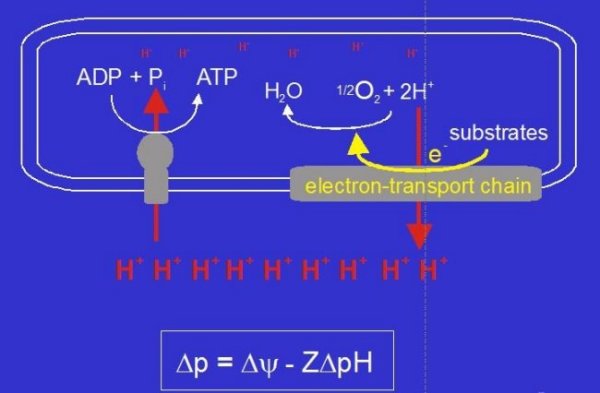Cellular Respiration / Proton Motive Force
Respiration is a fundamental part of cellular energy metabolism, which is responsible for the continuous regeneration of the biochemical energy carrier, adenosine triphosphate (ATP). The underlying processes are universal in distinct biological systems; they require the presence of cellular or organellar interfaces. The implied structural element is the inner membrane of the eukaryotic mitochondria or the cytoplasmic membrane of eubacteria and archaea.
The basic biochemical process involved is the enzymatic transport of protons across membranes, which macroscopically results in a transmembrane proton gradient. This form of free electrochemical energy is called "proton motive force" (pmf). It is used for the biosynthesis of ATP.

We are particularly interested in the molecular details of the formation and consumption of proton motive force. Redox-driven pumps transport protons across the respiratory membranes. The biochemical energy of "combustion" is coupled to active proton transport by means of integral membrane proteins. One can consider these as energy-converting molecular machines.

